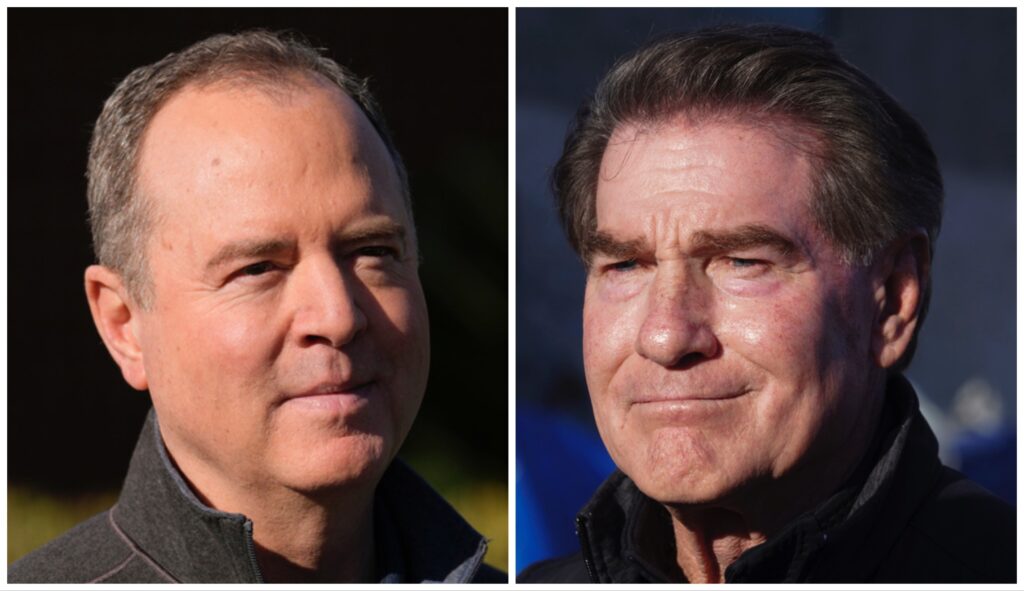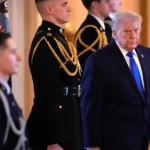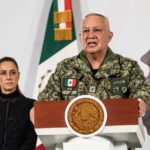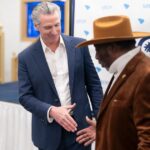
SAN FRANCISCO — Rep. Adam Schiff (D-CA) and Republican baseball star Steve Garvey pushed their way through a crowded Senate primary field on Tuesday to secure spots in November’s general election.
Garvey’s advancement to November helped avoid a costly slugfest between Schiff and Democratic rival Rep. Katie Porter (D-CA) that would have tested intraparty loyalties and drained resources that could be better spent on vulnerable Democrats in toss-up races. Now, Schiff likely faces a relatively pain free procession to take the late Sen. Dianne Feinstein’s seat.

The Associated Press called the race for Schiff 31 minutes after the polls closed at 11 p.m. Eastern.
During his victory speech, Garvey likened his second-place finish to “hitting a walk-off home run in a big game.”
He also told supporters to “keep in mind that this is the first game of a doubleheader” and to “keep the evening of Nov. 5 open.”
In her concession speech, Porter acknowledged her campaign came up short but told supporters that because of them, “we have the establishment running scared.” She also called out Schiff for spending “more to boost [Garvey] than promoting his own campaign.”
Californians voted twice for who they wanted as their next senator: once to fill the remainder of Feinstein’s term and another for a full six-year term, slated to start in 2025. In that contest, Schiff pulled in 36.9% of the vote to Garvey’s 29%, with 37% of the votes counted. Porter came in third with 14.9% of the vote, while Rep. Barbara Lee (D-CA) came in with 7.2%. Tuesday marked the first time in 30 years that Feinstein’s name wasn’t on the California ballot.
Political strategists predicted the results would come down to the impact former President Donald Trump had on Republicans in the state coupled with voter turnout and campaign cash.
The primary race was already the most expensive U.S. Senate race in California history. Schiff, a lawyer who led in almost all of the polling leading up to Tuesday, spent $38 million ahead of the contest, more than all of his 27 opponents combined.
At stake for Schiff is not only a spot in the upper chamber of Congress but also an opportunity to create a political legacy and take on Trump should he win a second term. The former president picked up all of California’s 169 delegates on Tuesday.
Schiff, who had been the Democratic front-runner since he announced his campaign, made an $11.2 million gamble to box out Porter by elevating Garvey. The strategy was to get enough people to vote for Garvey to get him across the primary election finish line and then go head-to-head with him in November for an easier win in a state where Democrats outnumber Republicans 2-to-1 in California.
The tactic raised eyebrows and had Porter calling foul.
“Adam Schiff knows he will lose to me in November,” she posted on X. “That’s what this brazenly cynical ad is about — furthering his own political career, boxing out qualified Democratic women candidates, and boosting a Republican candidate to do it. We need honest leadership, not political games.”
Yet, even as Porter slammed Schiff, she did the same thing, spending a half million dollars to bring attention to Eric Early, another Republican in the race, to blunt Garvey’s chances and raise hers.
In the run-up to the primary election, there were accusations of dirty politics from Schiff and Porter, calls for donor purity tests, and risky strategy sessions that had the potential to hurt down-ballot Democrats and hand Garvey a win.
Despite this, Schiff, a lawyer, defended the way he ran his race. His campaign has sent 3 million texts and made more than 50,000 calls to potential supporters. He’s also pulled in Hollywood heavyweights like Star Wars star Mark Hamill, who hosted a phone bank for him over the weekend.
CLICK HERE FOR MORE FROM THE WASHINGTON EXAMINER
Schiff was first elected to Congress in 2000, in what was at that time the most expensive House race. Since then, he has built a massive war chest (nearly $35 million in the bank) and is nationally known as an anti-Trump crusader. Schiff was the lead House impeachment manager during Trump’s first impeachment and also served on the House select committee investigating the Jan. 6 attack.
Garvey, a charismatic first baseman who played for the Los Angeles Dodgers and the San Diego Padres, ran an untraditional campaign. He didn’t have many campaign events lined up, dodged questions about his positions on hot-button issues, and even skipped community forums. He voted for Trump twice and has sat back and let Schiff carry him to the general election.




